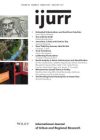Since the 1980s, the issue of social mix has become a public policy category in France. Enshrined in legislation, yet remaining controversial, it represents a major premise on which housing policies have been reconfigured. The concept of social mix is essentially based on who lives where, but it is also evoked in the context of urban renewal schemes for social housing estates, as well as in relation to new‐build developments. A study of the bases of social mix policies conducted in Paris since 2001 in the context of the embourgeoisement of the capital shows the fundamental role of social housing stock. The City Council has become involved in policy decisions about both the location and the allocation of social housing. Particular attention has been paid to the middle classes in the name of the principle of ‘balancing the population’. In order to measure the effects of the policy, this article relies on an analysis of two City of Paris schemes that have the stated intent of creating social mix. One of these schemes consists of redeveloping a working‐class neighbourhood, Goutte d’Or, while the other involves the new acquisition of social housing in various more affluent neighbourhoods in the capital. This comparative study of the population shows that, whether in a neighbourhood poised for gentrification or in a more affluent neighbourhood, this policy has major effects on forms of local social cohesion, setting in motion individual trajectories and reshaping social and/or ethnic identities.
Details
Written by:
MARIE‐HÉLÈNE BACQUÉ, YANKEL FIJALKOW, LYDIE LAUNAY, STÉPHANIE VERMEERSCH
Digital Object Identifier (DOI)
10.1111/j.1468-2427.2010.00995.x
About DOI
Read full article as PDF
Read full article as HTML
See the references for this article
